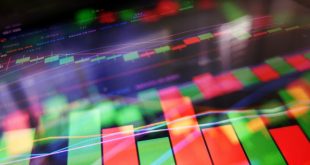Mohammed Hashad, Chief Strategist, Head of Research and Development at Noor Capital, and a member of the American Association of Technical Analysts, commented on how to interpret the conciliatory tone in recent statements by U.S. President Donald Trump, contrasted by China’s firm and non-conciliatory rhetoric. Hashad explained that, looking at the past period and the impact of Trump’s statements, it’s clear that markets have been significantly volatile amid these remarks, noting that Trump is widely recognized as a master of impactful statements.
Global financial markets are volatile, and the keyword is Donald Trump
Hashad added: “The North American session on Wednesday, April 23, witnessed a different tone. I believe the Trump administration seeks to de-escalate tensions between the U.S. and China, as evident in hints that tariffs may not last long and could be reduced to 60% instead of the current 145%.”
Hashad suggested that Trump’s conciliatory tone has a primary goal: to restore and strengthen the U.S. dollar’s position and boost confidence in American assets, which have lost significant ground during the current and previous trading weeks.
Regarding China’s firm stance, Hashad believes China is fully aware of its economic position as the world’s second-largest economy and the U.S.’s substantial debt, estimated at around $36 trillion. China also knows it is one of the largest creditors to the U.S. Therefore, escalating the trade dispute between the two nations would likely result in a scenario with no winners.
Confidence in the Dollar and American Assets
Responding to a question about U.S. efforts to bolster confidence in the dollar, which has hit significantly low levels recently, and Trump’s goal to reduce high debt levels, Hashad noted that balancing these objectives is complex. He explained that a weaker dollar has both positive and negative effects. On the positive side, it boosts exports, thereby stimulating U.S. economic growth. However, a weaker dollar increases import costs, negatively impacting debt levels.
Hashad believes this could reduce the purchasing power of tax revenues and other state income. Additionally, high interest rates are likely to persist, eroding investor confidence in American assets. This may force the U.S. to issue more bonds to restore investor confidence, increasing the financial burden.
OPEC+
Turning to oil markets, specifically OPEC+, and discussions among traders about potential production increases, some speculate that OPEC+ may be pressuring certain non-compliant countries on production levels. When asked if OPEC+ might pursue this amid market volatility, Hashad pointed out that all scenarios are possible for OPEC+. However, he believes pressuring specific countries is not among OPEC’s goals, as its primary objective is to protect the interests of producing nations and ensure market stability by balancing supply and demand. Hashad suggested that OPEC might increase production or accelerate production hikes as early as June.
Regarding OPEC+’s potential move toward production increases in the coming months and whether this trend will continue amidst current volatility, Hashad noted that OPEC+ decisions could be influenced by political and geopolitical factors driving oil prices.
Check Also
Trump: “Anything could happen”, but signals Possible Iran Talks
The Israel-Iran conflict, now in its sixth day as of June 18, 2025, has taken …
 Noor Trends News, Technical Analysis, Educational Tools and Recommendations
Noor Trends News, Technical Analysis, Educational Tools and Recommendations


